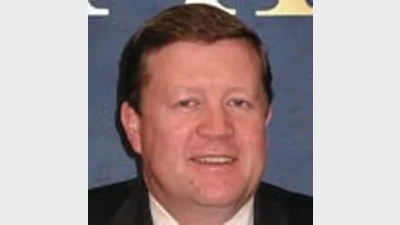AFS cuts out smaller practices



Adviser-owned Australian Financial Services (AFS) is to raise the lower limits of the size of practices it will work with as it seeks to build a more sustainable dealer group model.
AFS managing director Peter Daly said the group was increasing the lower limits on the size of businesses it works with, saying the high level and cost of support offered by the dealer group meant “we can’t afford to service small practices” unless the group believed the practice could grow substantially, and quickly.
AFS is now focusing on practices with an income of $300,000 or above. The group also increased its licensee fees over the past financial year.
Daly said around 10 per cent of AFS’ practices had merged or left the group altogether over the year, however, many of the practices had entered subsidiary The Salisbury Group (TSG). AFS owns 63 per cent of TSG.
AFS reported an after tax profit of $1.8 million while TSG reported a loss of $40,000.
Offsetting the lost and merged practices for AFS was the addition of 20 new practices, bringing 35 new advisers and $10 million in additional annualised revenue.
AFS boosted investment inflows in the 2008-09 financial year, with falling agribusiness income replaced by flows into new structured products launched by the group.
AFS group chairman Barry Stephen said while adviser revenues and funds in AFS-owned platform Strategy were down, the group’s fall in income was contained to 2 per cent on a pro-rata basis as “a result of a material increase in income from other sources”.
Daly put this down to inflows generated through a range of structured products the group launched in conjunction with Alpha, InStreet and Macquarie in the 2008-09 financial year. The group’s inflows exceeded outflows over the year, Daly said.
There had been a renewed focus on risk writing, Daly said, in addition to a collaborative effort between the dealer group and its practices, which meant many had come through the crisis in a stable condition.
In regards to possible legislative movement against commission payments to financial advisers, Daly said it was “important not to jump at shadows”.
The group is working with consultant Elixer to transition to fees. Roughly 40 per cent of the group’s advisers now charge fees, Daly said, while adding there might be some who never make the transition.
Recommended for you
Marking off its first year of operation, Perth-based advice firm Leeuwin Wealth is now looking to strengthen its position in the WA market, targeting organic growth and a strong regional presence.
Financial services software firm Iress has unveiled a new business efficiency program with the aim of permanently lifting its profit margin as the business enters a leaner, growth-focused phase.
AUSIEX has revealed the top traded stocks for October, noting significant jumps in advised investor trading, while ETFs also reported higher activity.
The Financial Advice Association Australia has implored advisers to reevaluate their exposure to AML/CTF obligations ahead of new reforms that will expand their compliance requirements significantly.










